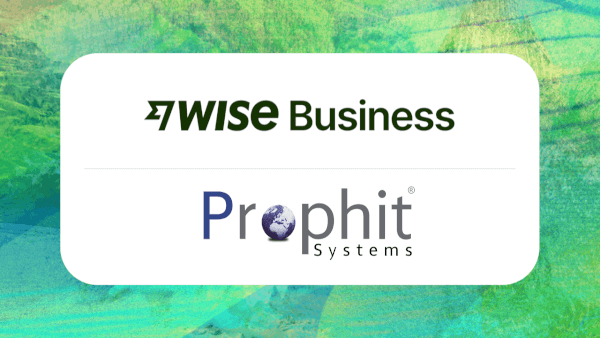Can a Sole Trader Have Employees? Rules & Guide
Unsure if a sole trader can hire employees? Learn the rules, legal obligations, and benefits of employing staff as a sole trader in Australia.

You’ve sent the invoice. The work’s done, the client’s happy, and now you wait. Days turn into weeks, and that “Payment Pending” line in your accounting software starts to worry you. It is common for Australian businesses to come across such scenarios. But as one might assume, it might not always be a client-side delay. There could be instances where unclear payment terms leave too much room for delay.
In this blog, let us cover some of the common payment terms, what they mean, and what an actual invoice generally looks like, in order to have a more streamlined "invoice sent → money received" invoicing process.
| Table of contents |
|---|
Invoice payment terms are the agreed-upon rules between your business and your customer that set out exactly how and when payment will happen. In Australia, they’re part of the sales contract and are covered by Australian contract law. They are usually placed right on the invoice, so there’s no confusion, and both sides know what to expect.
Standard terms often specify the payment method, whether you offer credit, and any related credit terms, such as 7, 21, or 28 days to pay1. Payment terms can also include your debt collection policy, detailing what steps you’ll take if a customer fails to pay. Clear terms help protect your income and manage cash flow.
Here’s a list of the most frequently used invoice payment terms in Australia2:
Example 1
| Payment details: | Payment by bank transfer (AUD) to ABC Supplies Pvt Ltd |
| Account name: | ABC Supplies Pvt Ltd |
| BSB: | 062-000 |
| Account number: | 12345678 |
| Payment amount: | AUD 5,000 (see itemised invoice) |
| Terms: | Net 30; 2/10 Net 30 |
| Due: | 13 Sep 2025 |
| Notes: | Please contact accounts@.abcsupplies.com.au if you anticipate any delays in payment. |
This example shows two of the most common payment terms used by Australian ABC Supplies Pvt Ltd has just completed a bulk order of industry materials for a mid-sized construction company in Melbourne. The order was delivered on 14 August 2025, with the total cost coming to AUD 5,000.

Because this is a trusted, repeat customer, ABC Supplies has offered standard Net 30 terms, giving the client until 13 September 2025 to make payment. To encourage quicker settlement, they’ve also added a 2/10 Net 30 incentive, meaning the client can take 2% off the invoice (paying AUD 4,900 instead of AUD 5,000) if they settle within the first 10 days.
By combining these two terms, ABC Supplies gives the client flexibility while improving the chance of early payment, which helps keep their own cash flow healthy.
Example 2
| Payment details: | Payment by bank transfer (AUD) to ABC Supplies Pvt Ltd |
| Account name: | ABC Supplies Pvt Ltd |
| BSB: | 062-000 |
| Account number: | 12345678 |
| Payment amount: | AUD 12,000 (see itemised invoice) |
| Terms: | Payment in Advance |
| Due: | Before production commences |
| Notes: | Full payment required prior to start of work. Please contact accounts@.abcsupplies.com.au for any clarifications. |
ABC Supplies Pvt Ltd has received a custom order from a new client, a Brisbane-based fabrication company, for specialised industrial materials worth AUD 12,000. Because the order is from a new client and involves high upfront material costs, ABC Supplies has set Payment in Advance as the term. This means the full amount must be paid before production begins.
This approach ensures the supplier can cover materials and labour without dipping into their own funds, protects them from non-payment, and confirms the client’s commitment before work starts.
A well-structured invoice sets clear expectations by outlining exactly what’s owed, when it’s due, and how payment should be made. This reduces misunderstandings and helps payments arrive on time. It’s particularly important when working with overseas clients, where currency conversion and international transfers can snowball into longer waiting periods.
Expanding a business globally opens up exciting opportunities, but also new challenges like receiving payments across borders. Hidden foreign transaction fees and hefty currency conversions involved with international payments can eat into your profits and time.
Wise Business serves as a cost-effective solution where you can receive money from around the world at the speed and price of local payments.
Transform the way you receive payments with Wise Business:
Sign up for the Wise Business account! 🚀
This general advice does not take into account your objectives, financial circumstances or needs and you should consider if it is appropriate for you.
Sources:
*Please see terms of use and product availability for your region or visit Wise fees and pricing for the most up to date pricing and fee information.
This publication is provided for general information purposes and does not constitute legal, tax or other professional advice from Wise Payments Limited or its subsidiaries and its affiliates, and it is not intended as a substitute for obtaining advice from a financial advisor or any other professional.
We make no representations, warranties or guarantees, whether expressed or implied, that the content in the publication is accurate, complete or up to date.

Unsure if a sole trader can hire employees? Learn the rules, legal obligations, and benefits of employing staff as a sole trader in Australia.

Learn how to lodge your BAS in Australia. Our guide covers what to include, from GST to PAYG, key due dates, and best practices to stay compliant with the ATO.

Discover if a virtual assistant is right for your business. This guide covers the types of VAs, their duties, managing them, along with the pros and cons.

Read on how Prophit Systems saved up to 9x on global payroll by switching to Wise Business, saving over 10+ hours a month in admin time.

Learn how the OFX business account works, its features, and how it compares to other international payments solutions. Find out more here!

Discover the best small business bank accounts in Australia for 2025. Compare fees, features, and benefits to find the perfect solution for your business.